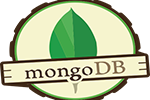What are Cloud-Native Applications?
Cloud-native is an approach to building and running applications that exploits the advantages of the cloud computing delivery model. Cloud-native is about how applications are created and deployed, not where. While today public cloud impacts the thinking about infrastructure investment for virtually every industry, a cloud-like delivery model isn’t exclusive to public environments. It's appropriate for both public and private clouds. Most important is the ability to offer nearly limitless computing power, on-demand, along with modern data and application services for developers. When companies build and operate applications in a cloud-native fashion, they bring new ideas to market faster and respond sooner to customer demands.
Organizations require a platform for building and operating cloud-native applications and services that automates and integrates the concepts of DevOps, continuous delivery, microservices, and containers:
The challenges of cloud-native applications
- One of the big mistakes customers make is trying to lift and shift their old on-premises apps to the cloud, Mann says. “Attempting to take existing applications—especially monolithic legacy applications—and move them onto a cloud infrastructure will not take advantage of essential cloud-native features.”
- Instead, you should look to do new things in new ways, either by putting new cloud-native applications into new cloud infrastructure or by breaking up existing monoliths to refactor them using cloud-native principles from the ground up.
- You also need to dispense with your old developer methods. The waterfall model certainly won’t do, and even agile development might not be enough. So, you must adopt new cloud-native approaches like minimum viable product (MVP) development, multivariate testing, rapid iteration, and working closely across organizational boundaries in a devops model.
- There are many aspects to being cloud-native, including infrastructure services, automation/orchestration, virtualization and containerization, microservices architecture, and observability. All of these mean a new way of doing things, which means breaking old habits as you learn the new ways. So do it at a measured pace.
Lantix 12factor App Development
In the modern era, software is commonly delivered as a service: called web apps, or software-as-a-service. The twelve-factor app is a methodology for building software-as-a-service apps that:
- Use declarative formats for setup automation, to minimize time and cost for new developers joining the project;
- Have a clean contract with the underlying operating system, offering maximum portability between execution environments;
- Are suitable for deployment on modern cloud platforms, obviating the need for servers and systems administration;
- Minimize divergence between development and production, enabling continuous deployment for maximum agility;
- And can scale up without significant changes to tooling, architecture, or development practices.
The twelve-factor methodology can be applied to apps written in any programming language, and which use any combination of backing services (database, queue, memory cache, etc).
Our Services
we work on SAAS and PAAS and we support and work on salesforce app development.
Lightning Platform (also known as Force.com) is a platform as a service (PaaS) that allows developers to create add-on applications that integrate into the main Salesforce.com application. These third-party applications are hosted on Salesforce.com's infrastructure.
Force.com applications are built using declarative tools, backed by Lightning[further explanation needed] and Apex (a proprietary Java-like programming language for Force.com) and Lightning and Visualforce (a framework that includes an XML syntax typically used to generate HTML). The Force.com platform typically receives three complete releases a year. As the platform is provided as a service to its developers, every single development instance also receives all these updates.
Lantix is a certified Salesforce development company offering a wide range of Salesforce consulting, salesforce integration and salesforce development services. Customize your Salesforce CRM with us.
Salesforce®️ Development
Being a Salesforce development company, we help organizations in planning, designing, and implementing complete Salesforce®️ based business solutions. We transform the way businesses interact and manage their customers, products, partners, and even employees. We are here to unleash the full potential for you.
Salesforce®️ Implementation Consulting
We help organizations plan and strategize the most efficient way to implement Salesforce.com products for their business processes. We employ our decade long experience for you in finding the right Salesforce.com product, the right feature set, and the right customizations.
Salesforce®️ Consultancy
We analyze your business needs and suggest the best Salesforce products. We will also find out for you the best process workflows to use these product most efficiently.
Salesforce®️ Development Strategy
As one of the top Salesforce development companies, we help organizations solve their business problems through Salesforce. We guide them in choosing the right customizations and in efficiently utilizing different Salesforce databases.
LANTIX Can Provide Resources
Cloud Architects
DevOPS Admin
Hadoop Architects
PYTHON And R Developers
Lantix Can Provide Services
DM and ER modeling As a Service
Co-colated OLTP and OLAP data warehouse design and solution implementation
Dimentional Modeling for ETL engine
Hadoop based Data Lake Design
[simple_contact_form]
Contact us
Personal Info

LANTIX Technology Expertise








